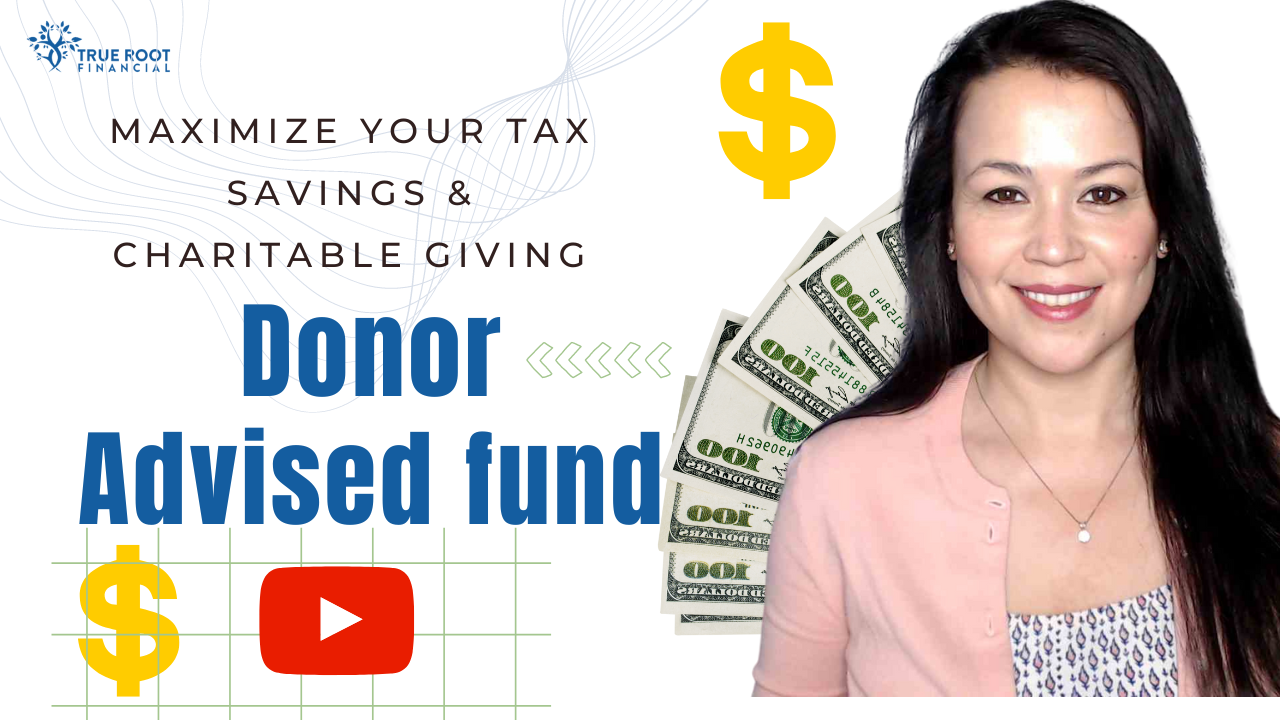Amplify your savings & investments with an HSA
Roshani Pandey is a financial advisor and founder of True Root Financial. True Root Financial is located in San Francisco, CA and serves clients across the globe.
Video transcript:
Do you know which savings account has the highest tax benefit? It’s not a 401K, it’s not an IRA. It’s not even a Roth. It’s actually a Healthcare savings account (HSA). HSAs have 3 levels of tax benefit making them the most attractive savings option.
Hello, this is Roshani from True Root Financial and in this video, I will explain to you why you must consider HSA when you pick your insurance this year. I will answer 8 questions about HSAs and in the end, I’ll also provide a bonus tax planning tip that you won’t want to miss. So, stay with me until the end.
Question # 1: What are healthcare savings account?
Just like a 401K, HSA accounts allow you to contribute before-tax money. And just like a 401K, you can invest the money and grow it over time. However, with a 401K, when you take the money out, say at retirement, you pay taxes on it. With an HSA account, you don’t pay any taxes on the money as long as it is taken out for qualified healthcare expenses.
We’ll talk about qualified healthcare expenses shortly but before that, I want to talk about the tax advantages because they are a big one.
Question # 2: What are the tax advantages of an HSA account?
HSAs are triple tax-exempt. You don’t pay taxes when you contribute because you are contributing before-tax dollars or money you haven’t paid taxes on. That’s the first benefit. The second benefit is that your money grows tax-free. Normally, when you invest your money, you pay on the growth say by paying capital gains taxes or taxes on dividends. But with an HSA, you don’t pay any of those taxes. So, your money grows tax-free. That’s the second benefit. The third tax benefit is that when you take the money out you don’t pay any income taxes, as long as it’s a qualified medical expense. No other savings program has these many benefits. Not a 401K, not a Roth, not an IRA, not a 529 plan…none of it.
Question # 3 Now let’s go back to our original question, what is a qualified medical expense?
These include a wide variety of medical expenses such as insurance co-pays, preventive care, eyeglasses, fertility services like IVF, prescription medicine, chiropractors…it’s a wide list. Somethings it doesn’t include are cosmetic procedures and the cost of buying the insurance itself, also known as the premium.
Question # 4 So, what happens if you use the HSA for unqualified healthcare expenses?
If you use the HSA for things that are not qualified healthcare expenses, you will pay regular income taxes on it, plus a penalty of 20% if you are under the age of 65. After the age of 65, you don’t pay any penalty. You just pay your normal income taxes, which is likely going to be lower at that age because you will be in retirement and your income will also likely be lower than what it is today. And remember, that’s only if you spend it on things that are not qualified. If you spend it on qualified expenses that we just talked about, there’s no tax on it, at any age.
Question # 5: How much can you contribute to an HSA plan?
For 2020, you can contribute up to $3,550 for an individual and $7,100 for a family. Now, that might not seem like a lot of money today. But if you contribute $7,000 tax-free every year, imagine how much it will grow over time, tax-free. And don’t forget, that $7,000 you contribute today will lower your income tax on the rest of your income because now your taxable income is lower by $7,000. So, the benefits are just incredible.
Question # 6 What happens if you don’t use the HSA money in the year you contribute?
Unlike an FSA, which a lot of people confuse HSAs with, HSAs can be rolled over forever. As you know, FSA is use-it-or-lose-it. You have to use it in the current year or by a certain date the year after. But the HSA balance can be rolled over indefinitely.
Question # 7 You might think, well I’m relatively healthy today. I don’t have high medical expenses. Why should I contribute? Here’s why:
As you age, your medical expenses will also rise. So, of all the money you’re saving in say 401K or an investment account or a savings account today, a good portion of it will actually go towards healthcare anyways. So, saving some of your money in HSA will give you a big tax advantage over all the other savings plans.
Question # 8 Who can contribute to an HSA?
The answer is anyone. Anyone that has a health insurance plan that offers them. And the kind of health insurance plans that offers HSAs are typically high deductible health plans. These plans might be available to you through your employer or if you’re self-employed, through the insurance marketplace. These plans are usually inexpensive to buy but they may only cover preventive care until you meet the deductible amount. But don’t be scared by this deductible number because that’s exactly the mistake that many people make. They shy away from these plans because they think they are expensive but when you take all the tax benefits we just talked about into account, these plans because of the HSA account can be more cost-effective on the net than low deductible plans that don’t offer HSAs. So, when you’re picking your insurance this year, consider all of these pros and cons before making a decision.
And now time for the bonus tip:
As I mentioned earlier, HSAs don’t have a deadline. You could keep contributing every year and investing that money and rolling it over to the next year, every year and essentially growing your money tax-free over the years. There’s also no deadline for when you need to submit any receipts to get reimbursed for out-of-pocket expenses. So, to get the most bang for your buck and maximize your savings, you could pay the healthcare expenses from outside the HSA and let the HSA account grow over the years. In the meantime, keep track of all of your out-of-pocket expenses and receipts. Then, once you reach your savings goal say at age 65, then cash out and get paid tax-free for all the out of pocket expenses.
This way you maximize your savings and make each dollar work extra-hard for you in the HSA account and take full advantage of the tax benefit.
Hope you enjoyed this video. These are the types of financial and tax planning strategies that I help my clients with. If you have any questions, please don’t hesitate to reach out. Thank you








Leave a Reply
Want to join the discussion?Feel free to contribute!